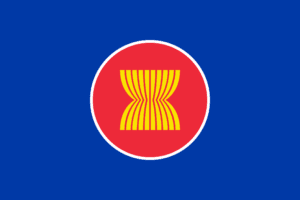ASEAN: Health Ministers Commit to NCDs Prevention
In the 14th ASEAN Health Ministers Meeting, the Ministers commited to NCDs Prevention among other goals.
The statement released after the meeting renewed the commitments to achieving the 2030 Agenda for Sustainable Development, the goal of “Together Towards A Healthy ASEAN” of the 13th meeting and the goals of the ASEAN Post-2015 Health Development Agenda. The ministers also committed to take action on NCD prevention and to cooperate among states among other commitments.
As part of the ASEAN Health Ministers’ commitment, alcohol prevention and control is included and should certainly be a major policy priority.
We reiterate our commitment to accelerate actions to prevent and control noncommunicable diseases through increasing the capabilities of the communities and its people in promoting healthier lifestyles, mobilising sustainable funds for NCD and strengthening the multi-sectoral and multi-stakeholder engagements on implementing the WHO recommended “best buy’’ and other interventions in line with country context, addressing commercial and social determinants of NCD; and the ASEAN Strategic Framework and Action Plan for Nutrition 2018- 2030 to promote good nutrition and healthy diet; promoting physical and mental health activities; NCD early diagnosis and treatment programmes; and, prevention of injuries,” read the statement as per ASEAN.
 ASEAN is the Association of Southeast Asian Nations functioning as a regional intergovernmental organization comprising ten countries in Southeast Asia, promoting intergovernmental cooperation and facilitating economic, political, security, military, educational, and sociocultural integration among its members and other countries in Asia. ASEAN member states are Brunei, Cambodia, Indonesia, Laos, Malaysia, Myanmar, Philippines, Singapore, Thailand, and Vietnam.
ASEAN is the Association of Southeast Asian Nations functioning as a regional intergovernmental organization comprising ten countries in Southeast Asia, promoting intergovernmental cooperation and facilitating economic, political, security, military, educational, and sociocultural integration among its members and other countries in Asia. ASEAN member states are Brunei, Cambodia, Indonesia, Laos, Malaysia, Myanmar, Philippines, Singapore, Thailand, and Vietnam.
The health ministers’ commitment to NCDs prevention, including alcohol prevention and control, comes at a crucial time for ASEAN countries. Earlier in 2019, a UN report warned that not a single country in the Asia and Pacific was on track to achieve the Sustainable Development Goals (SDGs) by 2030. Although progress has been made on some fronts the report says it’s still not fast enough to achieve the targets by 2030. For more than half of the goals, progress has stagnated. But even worse, the report reveals that the situation is actually deteriorating for three of the goals.
For goal 3.5 that address alcohol as obstacle to development, progress has halted and is in danger of being reversed, according to latest scientific findings and recent WHO reporting to the World Health Assembly in May 2019.
What the NCDs prevention commitment means for ASEAN alcohol policy
The promotion of a healthier lifestyle across ASEAN countries, especially through the mobilization of communities should clearly mean to protect the rights of children, youth, women and all other alcohol abstainers to live free from alcohol.
The majority of people in ASEAN countries does not consume alcohol, in any given year – despite aggressive alcohol industry efforts to recruit new consumers.
Mobilizing sustainable funds for NCDs should clearly mean systematic efforts to implement evidence-based alcohol taxation policies across ASEAN countries, like the examples of Thailand and the Philippines are demonstrating how effective alcohol taxation is in reducing the alcohol burden, raising domestic resources for health promotion and keeping alcohol use prevalence low.
Beyond alcohol taxation, the commitment to invest in the WHO recommended NCDs prevention best buys clearly comprises alcohol policy solutions, too. An integrated approach to the three alcohol policy best buys would be the way to go for ASEAN countries – for example as outlined in the WHO technical package SAFER.
And addressing commercial determinants of NCDs also means curbing alcohol industry interference in public health policy making processes, as evidenced in Vietnam during the process of formulating the alcohol law.
—
For further reading:
Asia: Alarming Rise in Alcohol Use
Landmark scientific study
